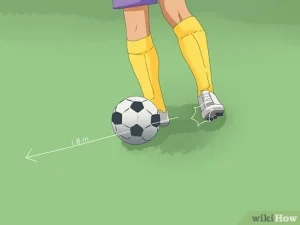Address Unauthorized Occupancy With NJ Squatters Rights Insight
Unauthorized occupancy, commonly referred to as squatting, is an issue that many property owners face. Squatting involves individuals residing in a property without the legal right to do so, often leading to complications for property owners and tenants alike. nj squatters rights, like many states, has its own set of laws and regulations addressing this issue, often categorized under squatters rights.
Understanding the framework of squatters rights in New Jersey can provide property owners with the necessary knowledge to handle unauthorized occupancy effectively while adhering to state laws. This blog unpacks the key benefits of having insight into squatters rights and how they can be used to protect property rights.
What Are Squatters Rights?
Squatters rights refer to the legal principles that protect a squatter from being forcibly removed from a property under certain conditions. These rights stem from a legal doctrine known as adverse possession, which may allow an individual to claim ownership of a property if they have occupied it continuously and openly for a designated period, without the owner’s consent.
The laws surrounding squatters rights are intended to ensure that property ownership disputes are handled lawfully and fairly. While these laws can complicate matters for property owners dealing with unauthorized occupants, they are also designed to prevent unlawful eviction practices and protect against unnecessary force.
Why Understanding Squatters Rights in New Jersey Matters
Managing unauthorized occupancy is a complex process, especially when legal principles like squatters rights come into play. Knowing how these rights work within New Jersey is vital for several reasons:
Staying Compliant with State Laws
Landlords and property owners need to act within the legal framework to avoid potential penalties or liabilities when addressing squatting situations. Taking unlawful actions to remove squatters can lead to fines, lawsuits, or even criminal charges. Understanding squatters rights mitigates these risks by ensuring compliance with the law during the removal process.
Protecting Property Ownership
Gaining insight into squatters rights ensures that property owners take the right steps to safeguard their ownership. This includes knowing when adverse possession might apply and how to counteract potential claims by unauthorized occupants.
Avoiding Financial Losses
Unauthorized occupants can cause financial strain for property owners, particularly when dealing with property damage, unpaid utilities, or legal fees. Navigating squatters rights effectively can minimize these losses by resolving disputes efficiently and reducing the risk of prolonged legal battles.
Reducing Stress and Enhancing Decision-Making
Addressing unauthorized occupancy can be an overwhelming and stressful experience. A clear understanding of squatters rights empowers property owners by providing them with a roadmap to follow, enabling them to make informed and confident decisions throughout the process.
Common Scenarios That Require Squatters Rights Insight in New Jersey
Several scenarios highlight the importance of understanding squatters rights, including:
Abandoned or Vacant Properties
Squatters often target abandoned or vacant properties because they perceive them to be unmonitored. Property owners who manage such properties should familiarize themselves with squatters rights and adverse possession laws to address unauthorized occupancy.
Lease Agreements Gone Wrong
Sometimes, unauthorized occupancy occurs when tenants refuse to vacate a property after the termination of a lease agreement. These holdover tenants may attempt to claim squatters rights, creating legal complexities for landlords.
Unauthorized Entry
Squatters can also gain access to a property without any prior tenant rights or agreements. Knowing the legal avenues available to resolve these situations ensures that such matters are addressed promptly and lawfully.




